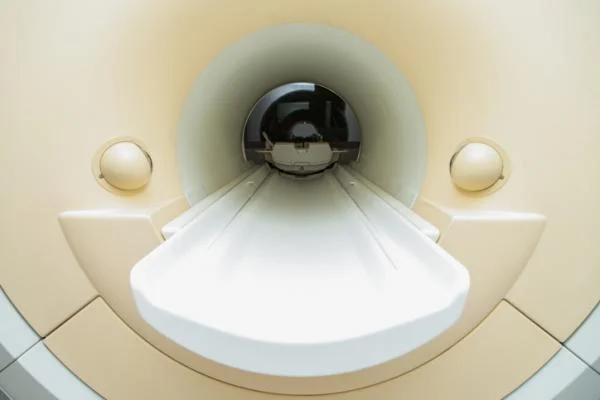
Getty Images
July 12, 2021 — Most countries have not introduced nationwide prostate cancer screening, as current methods result in over-diagnoses and excessive and unnecessary biopsies. A new study by researchers at Karolinska Institutet in Sweden, which is published in The New England Journal of Medicine, indicates that screening by magnetic resonance imaging (MRI) and targeted biopsies could potentially cut overdiagnoses by half. The results are presented today at the European Association of Urology Congress.
"Our results from a large, randomised study show that modern methods for prostate cancer screening maintain the benefits of screening, while decreasing the harms substantially. This addresses the greatest barrier to the introduction of nationwide screening," explained Tobias Nordström, associate professor of Urology at the Department of Clinical Sciences, Danderyd Hospital at Karolinska Institutet, who is in charge of the STHLM3MRI study.
Yearly, approximately 1,4 million men get a prostate cancer diagnosis and 375,000 men die from the disease. Previous studies have shown that organised screening can result in earlier detection and thereby reduce the risk of prostate-cancer deaths.
Current screening methods - PSA (prostate-specific antigen) tests combined with traditional biopsies - result in unnecessary biopsies, and the detection of numerous minor low-risk tumours. Consequently, no country except Lithuania has chosen to introduce a nationwide prostate-cancer screening programme, as the benefits do not exceed the disadvantages.
"Refined screening methods are required to reduce overdiagnosis and overtreatment of low-risk tumours, and prevent unnecessary biopsies and biopsy-related side-effects," explained Martin Eklund, associate professor at the Department of Medical Epidemiology and Biostatistics, Karolinska Institutet, with joint responsibility for the STHLM3MRI study.
The results of the STHLM3MRI study indicate that over-diagnoses can be halved by substituting traditional prostate biopsies with magnetic resonance imaging (MRI) and targeted biopsies. The number of unnecessary biopsies and the identification of minor low-risk tumours is reduced, while the new method can detect just as many clinically significant tumours.
STHLM3MRI is a randomized study conducted between 2018 and 2021 with participants from Stockholm County, which included 12,750 men. The participants first provided a blood sample for PSA analysis, as well as analysis by the new Stockholm3 test, developed by researchers at Karolinska Institutet. Men whose tests showed elevated levels were then randomly selected for traditional biopsies or MRI. In the MRI group, biopsies were conducted strictly on suspected tumours identified by MRI.
The study proceeded thereafter by investigating how the Stockholm3 test could be combined with MRI to further improve the method for prostate-cancer screening.
"We will soon present the second of the two main reports from the STHLM3MRI trial where we assess the role of a novel blood test as adjunct to MRI in prostate cancer screening. The future of prostate cancer diagnostics probably includes both improved blood tests and MRI. Nationwide screening for breast and cervical cancer among women has been available in the Western world for some time. We are finally able to show that men can also reduce their risk of malignant cancer through nationwide prostate-cancer screening that utilises modern methods," Tobias Nordström concludes.
Professor Hendrik Van Poppel, Adjunct Secretary General of the European Association of Urology (EAU) said: "It is exciting to see breakthroughs such as this in the field of early detection of prostate cancer. An innovation such as STHLM3MRI makes an even more compelling case for the European Commission to ensure a risk stratified approach to early detection of prostate cancer is adopted across the whole of Europe. The EAU is working hard to ensure that early detection of prostate cancer is addressed in the implementation of Europe's Beating Cancer Plan in order to reduce mortality of Europe's most common male cancer while also dealing with the challenges of over-diagnosis and overtreatment. We are really looking forward to seeing how STHLM3MRI can continue to contribute to this aim."
For more information: https://ki.se/en
Related Prostate Imaging Agent Information:
PSMA-Targeted Radiotracer Pinpoints Metastatic Prostate Cancer Across Anatomic Regions
FDA Approves First Commercially Available PSMA PET Imaging Agent for Prostate Cancer


 December 15, 2025
December 15, 2025 









